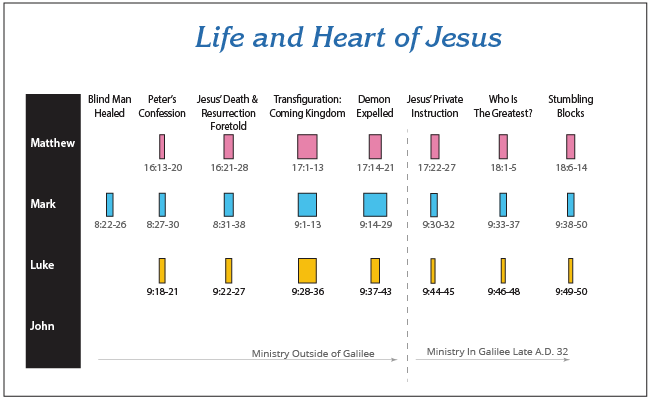Have you ever wondered how bees feel while they fly through the air? They flit from one flower to another collecting nectar to make honey. They spend hours and days making honey. Then someone comes along and steals their honey from them. In response they fly after him or her, dive bombing down with their stingers targeted on some area of skin. Their goal is revenge. Maybe such episodes reveal why bees have such lousy dispositions. This illustrates what happens to us sometimes when others steal our “honey.” They offend us, and we often end up with a lousy disposition. In revenge, some of us dive down with our stingers pointed at them like a bee diving down from on high. Our goal is to hurt. When was the last time you did that? When we do, we make the situation worse and cause the offender to stumble more. Sometime we offend and do not even know that we did. Our study is about offenses – causing others to stumble or stumbling ourselves. Our passages of scripture are Matthew 18:6-11; Mark 9:38-50 and Luke 9:49-50.

The Warning
In our last study we discovered that Jesus knew the twelve disciples had been arguing about whom was the greatest in the kingdom of heaven. They were arguing! They were arguing about who among them was the most important. The fact that they were arguing reveals someone was offended, insulted or questioned their own value. Instinctively, most people defend themselves. Pride can be a wicked weapon that cuts like a knife. The one who displays pride sins, and those listening sometimes sin in their reaction.
In response, Jesus laid down a key biblical principle called humility. He said that only humble people are saved. That is, anyone who comes to the Savior, Jesus Christ, for the forgiveness of sins must humble themselves like a child. They must see themselves as a spiritual beggar (Matthew 5:3) – completely needy and begging. What was Jesus’ message? If humility is required for salvation, then only those who get into heaven are a humble people. So, stop arguing about who is the greatest in heaven. That should not be a thought that real saints even have. In fact, those who belong to Jesus should be those who are openly receiving and loving (Matthew 18:5; Mark 9:37). Jesus’ principle was humility characterizes true followers of Christ.
Second Principle
Then Jesus taught the disciples a second principle and gave a warning. The second principle also flows from the disciple’s argument. If we just read the gospel of Matthew, we would think that Matthew 18:6 describes what happened next; but Mark 9:38-42 reveals that the conversation is interrupted by John asking about someone who had been casting out demons in Jesus’ name.
John said to Him, “Teacher, we saw someone casting out demons in Your name, and we tried to prevent him because he was not following us.” Mark 9:38 (NASB)

John is struggling with his own actions. He had stopped someone from casting out demons who was doing it in Jesus’ name. In the context of what Jesus had just said in Mark 9:37, the person had “received” Jesus. He/she was a believer and John now feels guilty. So he shares what he did.
Jesus replies. In His reply He prepares the disciples for the second principle,
But Jesus said, “Do not hinder him, for there is no one who will perform a miracle in My name, and be able soon afterward to speak evil of Me. For he who is not against us is for us. For whoever gives you a cup of water to drink because of your name as followers of Christ, truly I say to you, he will not lose his reward. Mark 9:39-41 (NASB)
Jesus says that if someone is ministering in His name, then do not hinder them. Do not discourage them! Those who receive me are received by the Father and will receive a reward. The implication is that they, the disciples, should not have tried to stop the man from ministering for Christ. Nor should we! Instead, we should give them some water and help them. Jesus emphasizes this action by promising a reward to those who do. Don’t you want a reward? You see, there is no middle ground with Jesus. You are either for Jesus or against Him. Ask yourself – how do you respond to others who are ministering for Jesus? Do you receive them with rewards like God the Father will do some day or do you hinder them?
Then Mark records that Jesus made what is now a famous statement,
. . . but whoever causes one of these little ones who believe in Me to stumble, it would be better for him to have a heavy millstone hung around his neck, and to be drowned in the depth of the sea.Matthew 18:6 (NASB)

There are three important truths to notice in this verse. First, Jesus is talking about all believers, including children. He is concerned about things that cause believers to stumble. He reveals His love and care for all believers – young and old. Second, He does not define stumbling blocks in this verse. He does that in the verses that follow. But Jesus does warn us that whoever causes a believer to stumble will not go unpunished. The Greek word that Jesus used for “causes . . to stumble” in Matthew 18:5 is skandalizdo. Our corresponding English word is scandalize. That word gives us a sense of the meaning of the Greek word. Jesus says it would be better to be dead than to “scandalize” one of His own – a believer. Imagine the punishment of college professors who cause Christian students to stumble regarding their faith in Jesus Christ. I know believers who had a difficult time in college as they listened to Christ-rejecting professors. However, God was faithful and they remained true to Christ. How about Christians who cause dissension and division in churches and cause others to sin? Such actions cause many young and old believers to stumble.
Stumbling Blocks
In the next three verses Jesus warns people of the world to not cause Christians to stumble.
Woe to the world because of its stumbling blocks! For it is inevitable that stumbling blocks come; but woe to that man through whom the stumbling block comes! Matthew 18:7 (NASB)
Jesus warns us that stumbling blocks occur all the time. Everyone of us can and will cause others to stumble. We might know that we cause someone to stumble, and we might not.
Jesus And Scripture Offends
Early in Jesus’ ministry He revealed that people will stumble because of Him. Some have and will stumble when they hear about His miracles, healings and wonders. He made the following comment when John the Baptist was wondering if Jesus was the Messiah. Apparently, John expected more from Jesus. Some people today think that God should do something spectacular to convince them of His existence. So, they stumble over Him because He doesn’t. Here is Jesus’ comment.
And blessed is he who does not take offense at Me. Matthew 11:6 (NASB)
In Matthew 13:57 Jesus declared that a prophet was rejected by those who knew Him. His hometown had rejected Him. Romans 9:32-33 says that Jesus is a stumbling block to the Jews. Galatians 5:11 adds that the Word of God is a stumbling block. In John 6:52-58 Jesus declared that spiritual life was found only in Him. Jesus spoke these words even though He knew some would stumble over them. Today when Christians speak about Jesus, we know that some people will be offended. They are offended by Jesus and the Bible.
Types Of Stumbling
While it is true that Jesus and the scriptures are stumbling blocks, this is not what He was talking about. Jesus was talking about sins that cause others to stumble. Remember that He had just rebuked the disciples for starting an argument about who was the greatest. One person started the discussion and the others then sinned. Sins causes others to sin or to stumble.
1 Corinthians 8:13 is another way we can cause someone to stumble. In that passage we are told that careless and thoughtless indulgence in the eating of food can cause someone to stumble. For example, there are some today who teach and believe that drinking alcohol is a sin. Other Christians do not. Consequently, I have made a life commitment before the Lord to never drink alcoholic beverages so that I do not cause anyone to stumble. If someone asks me, as a pastor, if I drink, I can honestly say, “No!” I believe that is a good example of this principle.
In Romans 14:13 the apostle Paul encourages Christians everywhere to not judge one another unjustly. Clearly, judging or evaluating others is appropriate. Otherwise, how would one ever select church leaders or reject a false teacher? But unjust judging cause people to stumble.
Improper teaching about sex can cause Christians to stumble. That is the message of Revelation 2:14. Or, how about motivating a fellow believer to get angry (Ephesians 6:4)? 1 Corinthians 12:25 and Jude 19 warn us against causing divisions. That is another form of causing another Christian to stumble. I have lived through several church divisions. When they occurred, there was a lot of stumbling. Many people sinned all because of one or more individuals. I am sure that you can think of other sins that cause people to sin.
On the night in which Jesus was betrayed, He had a Passover meal with the disciples. During that evening Jesus reminded His disciples that He would die and they could not come with Him (John 13:36-37). He told them that He would come again for them (John 14:1-3). His time with the disciples in the Upper Room (John 13:1-17:26) is one of the most intimate and meaningful passages in the New Testament. Jesus expresses His love for the disciples. Why did Jesus tell them these things? Jesus gives the answer in John 16:1. He did not want them to stumble. This means that we should take great care to prevent people from stumbling (2 Corinthians 6:3).
Prevent Others From Stumbling
Next, Jesus tells us what to do in order to not become a stumbling block.
If your hand or your foot causes you to stumble, cut it off and throw it from you; it is better for you to enter life crippled or lame, than to have two hands or two feet and be cast into the eternal fire. If your eye causes you to stumble, pluck it out and throw it from you. It is better for you to enter life with one eye, than to have two eyes and be cast into the fiery hell. Matthew 18:9 (NASB)
This is Jesus’ solution to not becoming a stumbling block. Is Jesus’ solution a surprise? His solution is simple. It is not what we want to hear. We want a Holy Spirit empowered solution, but Jesus does not give us one. There is no magic cure. His solution is simply to be serious and try harder. Take pains to avoid offense. Work at it.
When He says cut off our hands or pluck out an eye, Jesus does not literally mean that we should cut off our hands, feet or pluck out our eyes. For if one eye offends both eyes offend. Humans are not chameleons whose eyes can move and see in different directions. So, Jesus is speaking figuratively. His point is very simple, great effort must be given to not offend others. All too often we are glib and casual when others are offended. But Jesus says try hard and become responsible.
Some Root Causes
Then Jesus closed His discussion with two illustrations. His first illustration is about the little child that He drew to Himself and was still with Him.
See that you do not despise one of these little ones, for I say to you that their angels in heaven continually see the face of My Father who is in heaven. Matthew 18:10 (NASB)
Do not despise! Isn’t that the root cause of some stumbling? We despise someone so we ignore them. We think little of them and do not love them or treat them graciously. We are quick tempered, cause divisions, or think we are greater. You see the disciple who started the argument did not think very much of the others, but he thought a great deal of himself. The root cause of all stumbling that is caused by sin is someone who has a higher opinion of himself/herself than everyone else.
What they do not realize is that the God of heaven has such a high view of them that He has angels in heaven watching over them. Jesus wants us to know how important they are. Angels in heaven, who see the Father’s face daily, are watching over them. When Jesus says “continually” He uses Greek words which mean “through all.” That is, through “all” that occurs they are watching. The implication is that they are guarding and reporting. In the book of Hebrews, we are told that the angels of heaven are all ministering spirits. They minister to those who will inherit eternal life (Hebrews 1:14). Did you know that you are so important that God has angels watching over you? That also includes those believers whom you might despise. That should motivate a change of attitude towards those whom we despise. We should have great respect for them.
Conclusion
Mark 9:49-50 then gives us Jesus second illustration.
For everyone will be salted with fire. Salt is good; but if the salt becomes unsalty, with what will you make it salty again? Have salt in yourselves, and be at peace with one another. Mark 9:49–50 (NASB)
The first part of this illustration is difficult to understand. But “For everyone will be salted with fire” appears to mean that everyone will be tested by fire. Their works will be evaluated. Then in the next verse Jesus makes an obvious statement that salt that is no longer salty is not good for anything. In Matthew 5:13 Jesus used salt also, saying Christians are the salt of the earth. Jesus’ point is that Christians are to stand for holiness and speak against sin, but it is also important to remember that we need to be at peace with one another. This is an important concept. There are some Christians who are on witch hunts for every sin and sinning Christian they can find. They have their magnifying glass out and are looking for sin and sinning believers. Since we are all sinners, they find a lot of sin. Such people destroy churches and relationships. I am sure you know someone who finds fault with everyone and everybody. Instead, Jesus says they should have salt in themselves. They should be focusing on the sin within themselves and seeking to be at peace with all believers. Now there is a time and place for dealing with the sins of a sinning Christian. Jesus will tell us how to handle that situation in another study. It is coming in Matthew 18:15-18. But even then the goal is peace and holiness. If we have the correct perspective, we will search for the sin in ourselves, not despise others, and realize that we are not the greatest. We are just sinners saved by grace. We were spiritually bankrupt sinners who are now saved by His wonderful love.